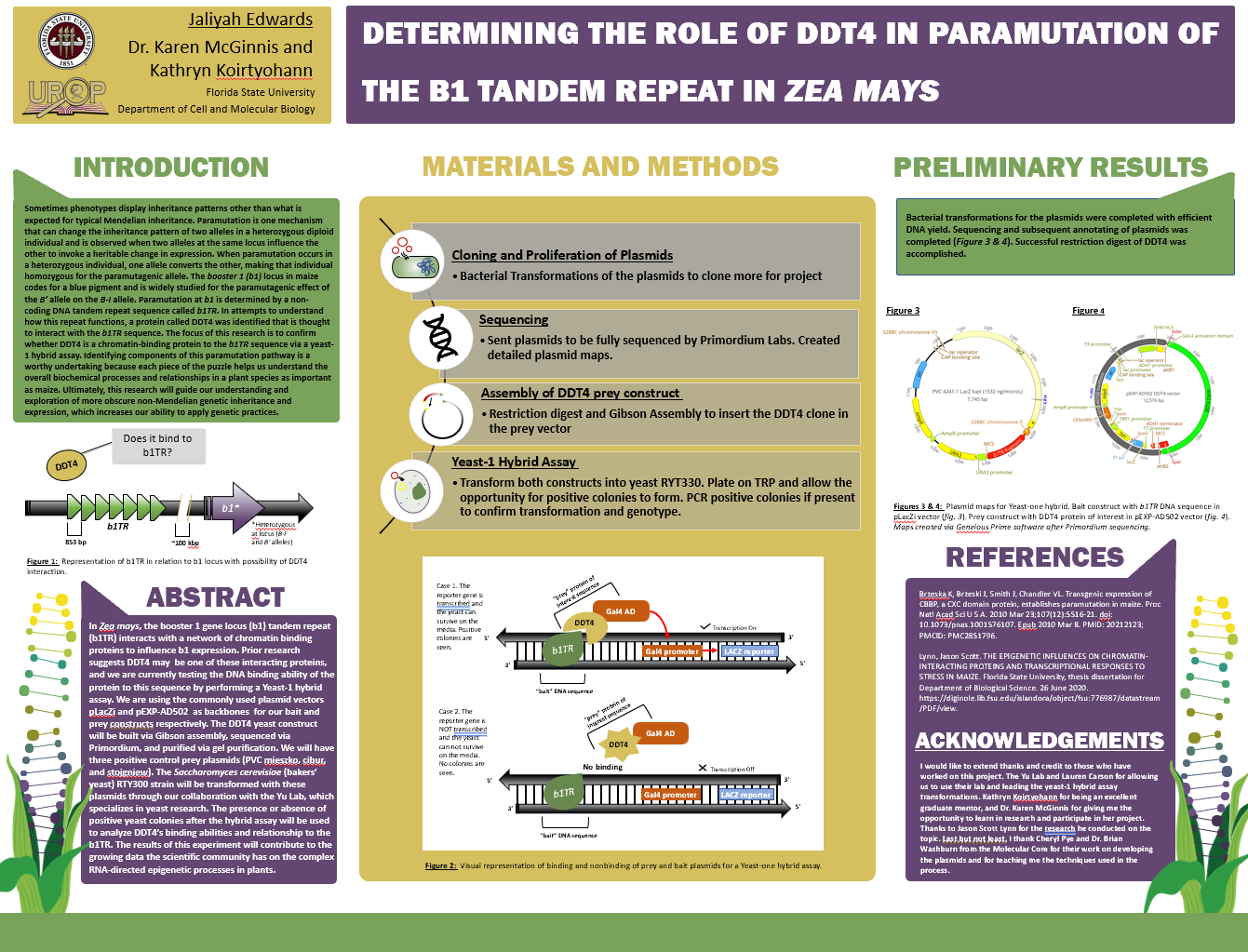Research Symposium
23rd annual Undergraduate Research Symposium, April 6, 2023
Jaliyah Edwards Poster Session 2: 1:30 pm - 2:30 pm/ Poster #237

BIO
Jaliyah is currently a sophomore majoring in Biochemistry with a minor in STEM Entrepreneurship. She is a member of the Alpha Chi Sigma chemistry fraternity on campus, and she works at the FSU Biomedical Research Facility. Her long-term career goal is to attend graduate school to become a veterinary surgeon, but, as of late, she has also been considering getting a PhD in research, so she is open to the career path each possibility presents to her.
Because of UROP, Jaliyah is becoming increasingly interested in research. She is interested in a broad variety of molecular biology and biochemical research, specifically relating to genetics and biochemical pathways. Thus, she is looking forward to continuing to participate in research projects throughout her remaining years at Florida State.
DETERMINING THE ROLE OF DDT4 IN PARAMUTATION OF THE B1 TANDEM REPEAT IN ZEA MAYS
Authors: Jaliyah Edwards, Karen McGinnisStudent Major: Biochemistry, minor in STEM Entrepreneurship
Mentor: Karen McGinnis
Mentor's Department: Department of Cell and Molecular Biology Mentor's College: College of Arts and Sciences Co-Presenters:
Abstract
In Zea mays, the booster 1 gene locus (b1) tandem repeat (b1TR) interacts with a network of chromatin binding proteins to influence b1 expression. Prior research suggests DDT4 may be one of these interacting proteins, and we are currently testing the DNA binding ability of the protein to this sequence by performing a Yeast-1 hybrid assay. We are using the commonly used plasmid vectors pLacZi and pEXP-AD502 as backbones for our bait and prey constructs respectively. The DDT4 yeast construct will be built via Gibson assembly, sequenced via Primordium, and purified via gel purification. We will have three positive control prey plasmids (PVC mieszko, cibur, and stojgniew). The Saccharomyces cerevisiae (bakers’ yeast) RTY300 strain will be transformed with these plasmids through our collaboration with the Yu Lab, which specializes in yeast research. The presence or absence of positive yeast colonies after the hybrid assay will be used to analyze DDT4’s binding abilities and relationship to the b1TR. The results of this experiment will contribute to the growing data the scientific community has on the complex RNA-directed epigenetic processes in plants.
Keywords: maize, molecular biology, genetics, protein, yeast-1 hybrid assay, DDT4, b1TR

